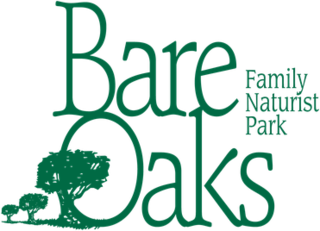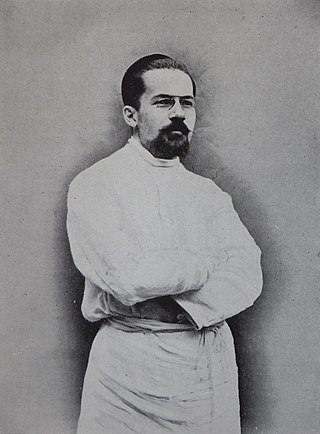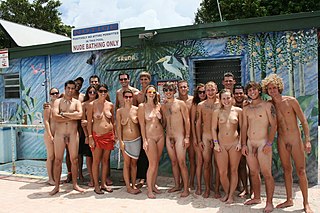
Gaston Durville (1887-1971) was a French physician who, with his brother, André Durville, was one of the initiators of naturism in France during the interwar period.

Gaston Durville (1887-1971) was a French physician who, with his brother, André Durville, was one of the initiators of naturism in France during the interwar period.
In 1911 he graduated from Montpellier University as a physician, his thesis was entitled in French : Étude étiologique de l’hypnose, lit. 'A Study of the Etiology of Hypnosis'.
With his brother, André Durville he established the Naturist Society in 1927. In 1928 the brothers founded the Physiopolis naturist camp on Platais island in the Seine [lower-alpha 1] 27.6 kilometres (17.1 mi) from the centre of Paris. In 1930 they established the naturist village of Heliopolis on the Île du Levant, an island in the Mediterranean Sea. [1]
During his medical training, he worked for a time at the hospice at Brévannes under the tutelage of Dr Paul Carton, [2] where he gained his knowledge of natural treatments.
Gaston Durville joined the Vegetarian Society of France, and became well known for his vegetarian/naturist ideas. At the same time many vegetarians and naturopaths showed hostility to foreign breakfasts. The doctors Gaston and André Durville blamed the English breakfast consisting of bacon and eggs for being too high in protein: “The English breakfast with ham, bacon and eggs is nonsense even for a cold and wet country such as England and to a greater extent for France” [3]
After World War I he published a voluminous treatise on naturist healing, La Cure naturiste followed by a series of 13 booklets on the naturist therapy and "psycho medicine". In 1923, together with his brother André, he launched the magazine La Vie Sage, monthly review of naturism and psychic education - which took the title Naturisme in 1930.
The two brothers then engaged in a long cooperation with the publication of books on therapeutic methods related to naturism. In the early 1920s they founded an institute for natural medicine in Cimarosa Street in the 16th arrondissement of Paris - which a few years later was renamed the Naturist Institute.
Durville's brother, Henri, besides his publishing activities, had partnered with a former disciple of Dr Paul Carton, Dr. Viard, to found a psycho-naturist Medicine Institute in Neuilly-sur-Seine. The combined influence of Carton's natural medicine and the "psychological medicine" of Hector and Henri Durville led the brothers, Gaston and André, to develop a "psycho-naturism" therapeutic method based on the combined use of physical agents, diet, massage, physical exercise, air baths, water and light, psychic agents, magnetism, hypnosis, mental suggestion and psychotherapy.
The brothers became convinced that the practice of medicine in specialized institutions was not sufficient ensure good health, and so they began to find news was to popularize the benefits of naturism. [4]
Bauberot (2008) analysed the different ways how nudity became associated with a back-to-nature attitude and the ensued practices. At the end of the 19th century, naturist doctors advised nudity for the hygienic and therapeutic benefits from the air and sun exposure. Nevertheless, modesty codes had the effect of dissuading the French naturists from complete and collective nudity. After World War II, some naturist activists began working on democratizing the air and sun treatment. Gradually, they created a leisure naturism; the term will be associated with an outdoor activity, practiced nude. The practise of nudism remained partial for some of naturists, others advocated a complete naturism that led to nudism.
Gaston Durville was the son of the occultist, magnetist and hypnotist, Hector Durville, brother to André Durville and Henri Durville, André was also a doctor, Henri was a publisher. Gaston Durville had one son, Jacques born in 1918, also a physician. [5]

Naturism is a lifestyle of practicing non-sexual social nudity in private and in public; the word also refers to the cultural movement which advocates and defends that lifestyle. Both may alternatively be called nudism. Though the two terms are broadly interchangeable, nudism emphasizes the practice of nudity, whilst naturism highlights an attitude favoring harmony with nature and respect for the environment, into which that practice is integrated. That said, naturists come from a range of philosophical and cultural backgrounds; there is no single naturist ideology.
Île du Levant, sometimes referred to as Le Levant, is a French island in the Mediterranean off the coast of the Riviera, near Toulon. It is one of the four that constitute the Îles d'Hyères. Part of the island is occupied by the naturist resort of Heliopolis and the rest is under military control.
The International Naturist Federation (INF) or Fédération naturiste internationale (FNI) or Internationalen Naturisten Föderation (INF) is the global umbrella organisation representing official national naturist societies.

Social nudity is the practice of nudity in relatively public settings not restricted by gender. This occurs both in public spaces and on commercial property, such as at a naturist resort.

CHM Montalivet, also known as CHM Monta, is the world's first naturist holiday resort located south of Montalivet, in Vendays-Montalivet, France. CHM Montalivet opened in 1950, and the International Naturist Federation (FNI/INF) was founded there in 1953.
Anarcho-naturism, also referred to as anarchist naturism and naturist anarchism, appeared in the late 19th century as the union of anarchist and naturist philosophies. In many of the alternative communities established in Britain in the early 1900s, "nudism, anarchism, vegetarianism and free love were accepted as part of a politically radical way of life". In the 1920s, the inhabitants of the anarchist community at Whiteway, near Stroud in Gloucestershire, "shocked the conservative residents of the area with their shameless nudity". Mainly, it had importance within individualist anarchist circles in Spain, France, Portugal and Cuba.
Henri Zisly was a French individualist anarchist and naturist. He participated alongside Henri Beylie and Émile Gravelle in many journals such as La Nouvelle Humanité and La Vie Naturelle, which promoted anarchist-naturism.

Bare Oaks Family Naturist Park is a naturist resort located in southern Ontario, about 40 kilometres (25 mi) from Toronto. It encompasses typical amenities for day users, 110 serviced campsites, five cabins, and five guest rooms. The club is situated on 50 acres (20 ha) of privately owned, forested land at the edge of the Oak Ridges Moraine, within the Ontario Greenbelt. Harrison Creek borders the northern boundary while the Black River bisects the property. There are also two ponds and a small lake.

Paul Joseph Edmond Carton was a French physician, naturopath and practitioner of vegetarianism.
The Association pour la promotion du naturisme en liberté (APNEL) is a French organization that seeks decriminalization of nudity, with particular emphasis on the section of French penal code relating to sexual exhibitionism.
Naturism has been active in France since 1920.
Naturism is a cultural and social movement practicing, advocating and defending social nudity in private and in public. It is particularly strong in Germany where it goes under the name Freikörperkultur (FKK). It refers to a lifestyle based on personal, family and/or social nudism in the "great outdoors" environment. Naturism grew out of the German Lebensreform movement and the Wandervogel youth movement of 1896, and has been adopted in many neighbouring European countries and was taken by the German diaspora to North America and other continents.

André Durville (1896-1979) was a French physician who, with his brother, Gaston Durville, was one of the initiators of naturism in France during the interwar period.
The French Vegetarian Society was a vegetarian organization, formed in 1882 by G. Goyart. The aim of the Society was to "propagate vegetarianism and assert the benefits of any order it presents."

A naturist resort or nudist resort is an establishment that provides accommodation and other amenities for guests in a context where they are invited to practise naturism – that is, a lifestyle of non-sexual social nudity. A smaller, more rustic, or more basic naturist resort may be called a naturist camp.

The Island of Platais, or Island of Médan, is an island of the River Seine in France 30 kilometers downstream from Paris. It is approximately 1.7 kilometers long and located in the Yvelines department between Villennes-sur-Seine and Médan on the left bank, and Triel-sur-Seine on the right bank. It is positioned downstream from the island of Hernière from which it is separated by a narrow channel. It is administratively shared between the municipalities of Villennes-sur-Seine, Médan and Triel-sur-Seine. The island is not connected to the river banks except by ferries.

Jacques Colin Frédéric Albert Demarquette, best known as Jacques de Marquette was a French naturist, pacifist, theosophist and vegetarianism activist. He was the founder of Trait d'Union and a naturist camping ground in Choisel. In 1924, Demarquette established the first vegetarian restaurant in Paris.